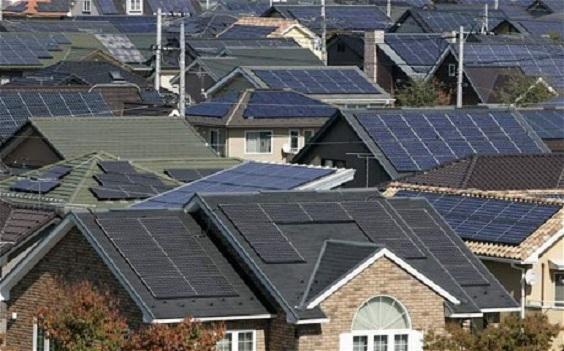Residential solar systems are becoming popular around the country because of the benefits they offer to homeowners. Traditional sources of electricity are expensive, unfriendly to the environment, and at risk for malfunction. Installing solar panels on the roof of a home can alleviate all of these issues to some extent. If you are planning to turn to the sun for energy, you can enjoy the benefits of solar power for a home, such as saving money on energy, reducing the environmental impact of climate change, and reliability.
Savings
Although cells require a considerable investment up front, the solar panel savings returned over the life of an array are generally enough to pay back the cost in 5 to 10 years. Installing a system on a roof can cut electric bills in half, and in high-sun areas like Las Vegas, you may be able to eliminate your bill completely – or even get paid by the electric company for the extra energy your home produces.
In addition to saving money on electricity, the federal government is offering a 30 percent tax credit on installed systems until the end of 2016, which makes the initial cost more affordable. Many states also offer additional credits and incentives to homeowners who choose to turn to solar power.
If you install a system on your roof and decide to move, the house can be sold for more because of the solar energy benefits included with the purchase. With the ability to save money on bills, the installation investment and resale of the home, adding solar cells to a residence is extremely advantageous to the homeowner in the long run.
Environmental Impact
While saving money is generally the top reason people decide to install solar systems, helping the environment is an added benefit of solar power. The United States is among the top countries in producing human-driven carbon dioxide (CO2) emissions, which are most commonly created by the combustion of fossil fuels. This process is how electricity is generated in most homes, but is harmful to the environment and contributes to global warming. Fortunately, a residential solar panel system can cut down these damaging emissions by using renewable energy to create power.
One of the most impactful benefits of solar power is its clean energy production. Solar panels generate zero waste and emissions, reducing pollution and supporting a healthier atmosphere. On average, installing a home solar system can reduce carbon dioxide emissions by approximately 100,000 pounds over the course of its life, says The Solar Institute. To put that in perspective, that’s about as much CO2 produced by a car driven 100,000 miles. These benefits of solar energy and reduction in greenhouse gases are seen by both individuals and society as a whole. Cleaner air means better health, while limiting carbon dioxide emissions results in slowed climate change and reduced weather extremes.
Reliable Energy
When discussing the benefits of solar power, reliability can’t be ignored. Anyone who has ever experienced a power outage or failure with their current system knows the frustrations of dealing with an electric company. If saving money and the environment are not reason enough to consider solar panels, the consistency and low maintenance of cells are worth reviewing.
The sun comes up and goes down every day. That means a system driven by the sun’s energy can function as long as there is a sun. Additionally, solar panels will operate without requiring a ton of maintenance or action from the homeowner. They don’t have moving parts and are built to withstand varying weather conditions, and most have a fully functioning lifespan of more than 25 years. Periodic inspections and cleaning may help maintain efficiency, but those tasks can be performed without special training.
The benefits of solar energy are making the installation of roof systems for the home more common throughout the country, particularly in sunny areas like California, Nevada, Arizona and New Mexico. Residents of cloudier states can still see returns on a residential solar system, so they should find out what incentives their state offers, and if affordable, do their part to improve the environment. After all, solar energy benefits not only person who puts panels on a roof, but the rest of the world.

